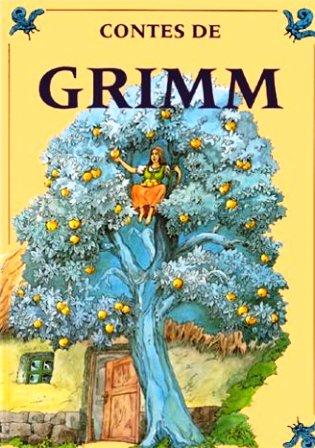J'm'interroge a écrit :quote="ChristianK"...Mais supposons gratuitement que les lois de la nature soient causées à chaque seconde par une cause première, quoi de si "irrationnel" ou "non rationnel" que la cause première intervienne et modifie les lois des causes secondes, puisqu'elle est la cause de ces lois?
-----------------------------------------
Les lois de la nature seraient rationnelles et et la cause première de laquelle elles découlent ne le serait pas, ou pas autant ?
C'est poser ce genre d'affirmation qui est irrationnel ou "non rationnel" à mon sens.
Je ne vois pas pourquoi la cause première qui intervciendrait dans les causes secondes serait irrationnelle. J’imagine qu’elle aurait ses raisons. Pourquoi dire a priori que ce serait irrationnel? Si on élargit la notion de loi de la nature, on dira que Dieu ne viole aucune loi puisque sa causalité d’exception (miracle disons pour faire court) fait aussi partie d’une loi : la loi de la domination divine sur tout. Analogie: je tape pendant 100 ans sur un cube d'acier de haut en bas, puis une seule fois, je tape dessous, de bas en haut. En quoi l'exception est-elle contraire à la raison ou impossible?
La Cause première qui "cause" à chaque instant et donc discrètement les phénomènes observables naturels, je l'appelle Cause fondamentale ce qui porte moins à confusion. Elle est nécessairement ce qui ne peut pas ne pas être, elle est nécessité en soi, trame des possibles en soi, à distinguer des possibles par hypothèse selon nous : êtres nécessairement ignorants, connaître une chose étant toujours au moins partiellement en ignorer une autre. Cette Cause fondamentale qui est en soi et qui est donc l'Être même, nécessaire en soi, comment pourrait-elle être capricieuse ? Elle est nécessairement pure cohérence, Raison, sans état d'âme ni caprice.
Mettons, et ca va dans la ligne de Spinoza. Mais je me place – gratuitement – dans l’autre hypothèse et c’est une pétition de principe de parler a priori de « caprice ». Pour l’instant les 2 hypothèses sont défendables à égalité. Suite à Hume cette discussion a souvent tourné autour de la proposition "les lois de la nature n'ont jamais d'exception".
quote="ChristianK"...ca tourne autour de l'argument fameux de David Hume sur l'induction et les miracles (et très curieusement Hume avait la conception la plus faible qui soit sur l'induction (une croyance sans fondement)
-------------------------------
Je ne suis pas sûr que Hume posait l'induction comme non fondée en Logique... Ce qu'il jugeait infondé rationnellement était plutôt il me semble : la causalité naturelle.
Pourrais-tu citer le passage en question ?
Voici une piste:
Few philosophers are as associated with induction as David Hume. He described the problem in An Enquiry concerning Human Understanding, §4, based on his epistemological framework. Here, "reason" refers to deductive reasoning and "induction" refers to inductive reasoning.
First, Hume ponders the discovery of causal relations, which form the basis for what he refers to as "matters of fact". He argues that causal relations are found not by reason, but by induction. This is because for any cause, multiple effects are conceivable, and the actual effect cannot be determined by reasoning about the cause; instead, one must observe occurrences of the causal relation to discover that it holds. For example, when one thinks of "a billiard ball moving in a straight line toward another",[13] one can conceive that the first ball bounces back with the second ball remaining at rest, the first ball stops and the second ball moves, or the first ball jumps over the second, etc. There is no reason to conclude any of these possibilities over the others. Only through previous observation can it be predicted, inductively, what will actually happen with the balls. In general, it is not necessary that causal relation in the future resemble causal relations in the past, as it is always conceivable otherwise; for Hume, this is because the negation of the claim does not lead to a contradiction.
Next, Hume ponders the justification of induction. If all matters of fact are based on causal relations, and all causal relations are found by induction, then induction must be shown to be valid somehow. He uses the fact that induction assumes a valid connection between the proposition "I have found that such an object has always been attended with such an effect" and the proposition "I foresee that other objects which are in appearance similar will be attended with similar effects".[14] One connects these two propositions not by reason, but by induction. This claim is supported by the same reasoning as that for causal relations above, and by the observation that even rationally inexperienced people can infer, for example, that touching fire causes pain. Hume challenges other philosophers to come up with a (deductive) reason for the connection. If a deductive justification for induction cannot be provided, then it appears that induction is based on an inductive assumption about the connection, which would be begging the question. Induction, itself, cannot validly explain the connection.
In this way, the problem of induction is not only concerned with the uncertainty of conclusions derived by induction, but doubts the very principle through which those uncertain conclusions are derived.[15]
aussi:
https://en.wikipedia.org/wiki/Of_Miracles
Miracles = légendes
Pourquoi n'y a-t-il plus de "miracles" aujourd'hui?
Une exception aux lois de la nature est par définition rarissime, cela donne l'impression qu'il n'y en a pas.
Les miracles sont légendes seulement s'ils n'existent pas. Or comment savoir s'ils n'existent pas et sont possibles?
